When businessman Jamshetji Tata was refused entry to a hotel due to his Indian ethnicity during the days of the British Raj, he retaliated by building his own hotel. Aiming to create an iconic structure surpassing other hotels of the time in elegance, Tata declared that entry would be open in his establishment, the Taj Mahal Palace Hotel.
Now one of Mumbai’s iconic landmarks, the Taj stands in regal splendour at the mouth of Mumbai’s harbour. With over 470 rooms, the Taj’s glory is evident in the marble flooring, extravagant chandeliers and water fountains that decorate its rooms along with the impeccable service delivered in its several bars and restaurants. Mumbai residents proudly adore the sumptuous hotel and its addition of beautiful to the city.
My English grandparents lived in India during the 1930’s through to the 1950’s; and my Indian-born father clearly remembers weekly visits to the Taj for Sunday Afternoon Teas as a small boy. I have made the Taj my second home in this city, getting to know staff, using it both personally and professionally – including to ward off the occasional bout of homesickness. Watching it burn from my apartment in Colaba, directly at the epicenter of the terrorist attacks of the past week, was heartbreaking.
What impact the recent events will have on foreign entities and their investment within the subcontinent? Although some of our New Zealand and Australian expat community were directly caught up in the bloody events, it is with relief that I can report that none have lost their lives. Although the targets were extensively used by all of the various communities living and working within Mumbai, it is sadly by and large Indian colleagues, friends and associates who paid the ultimate price. Everyone seems to know someone directly affected.
To date there have been a few cancelled visits by new entrant companies in light of the terror. I am heartened to see that existing and new business plans slightly further down the track than those who are just putting their big toes in the market are still continuing with their plans.
According to Indian industry experts, the Indian economy should bounce back from both the financial crisis fallout and the recent terror attacks sooner than anticipated. Unlike the US or European economies, India has several things already in its favour. The impact of the global financial crisis is forecast to remain fairly limited due to the strong demand for consumption within the economy, the demographic advantage and the strength of the Indian financial system.
Principle areas of investment continue to remain within the infrastructure sector; an area which was sorely overlooked from Independence in 1947 until the early 1990’s, leaving India in concentrated catch up mode to ensure it can seriously compete with the major players in the global economy. Core requirements being the creation of modern highways; and significant investment sought in railways, airports, bridges and port facilities. FDI is approved to 100% in this sector.
Other areas of increasing activity include financial services, real estate, education, healthcare, manufacturing, hospitality, tourism and entertainment; along with a range of sectors that are directly attributed to by the dramatic growth of India’s middle class. For the first time in India’s history large numbers of people have disposable income. With over 50% of the 1.2 billion population under the age of 25 years, these core requirements will dramatically increase as India assumes its greater role in the global economy. In addition, inflation appears to be leveling out with a decline over the past few weeks.
Politics here are an interesting beast, with elections going on in some states currently, and the new government due to be named in the first few months of 2009. It is expected to be another coalition government. The country’s growth, despite a recent drop in GDP, is still estimated to remain within a healthy 7-8% with continued steady growth predicted in both incoming and outgoing investment. FDI flow has been $6.5 billion for the first five months of the current financial year, against $2.7 billion for the same period in the previous year.
It is hard to say how the recent events of the past few days will affect the outcome of the elections. As I write this, it is exactly a week from when the terrorist siege of Mumbai began, heads are rolling and there is a lot of shuffling within government. The people of India are clearly expressing their views on what is required in the form of Gandhi-inspired peaceful marches and rallies, primarily orchestrated by youth. It is interesting to note there appears to be a major change in reaction to the past few days horrific events when compared with the aftermath of previous terrorist activity within this country. There has, for the first time, been no consequential civil unrest between opposing sectors of society within the city itself to date. All sides of society appear to be in agreement that infrastructure for the police, military and security personnel, including more accountability, are top of the agenda.
The New Zealand government continues to develop closer ties with India through ongoing talks seeking a Free Trade Agreement between the two countries, with India being in the top three countries currently being targeted by New Zealand. Government representatives here in India are actively supporting New Zealand companies, along with a pool of expatriated professionals, including New Zealand citizens based here in India specifically to assist in foreign company requirements from on the ground. This means that there are other options available to entities looking to enter this market, without having to have an actual physical presence, avoiding potentially high cost and downtime relocating their own employees, thus minimizing risk.
As a foreign company looking to this market, you would most certainly be wise to carefully evaluate your plans at this point. Despite a slight lull due to both the financial crisis and the recent terrorist activity in the country’s commercial capital, the feeling is that business will carry on as normal with no major change expected in the medium to long term for both inbound and outbound investment in India.
And on a closing note, having lived in Mumbai for the past two years, I can assure companies and individuals that I have never once felt hostility towards myself or any other foreigner. On the contrary, from business leaders to industry heads right down to the man on the street, foreign presence, investment and assistance within this country is welcomed with enthusiasm and interest.
India is still the elephant in the room.
Daily Cartoon: Tuesday, September 16th
-
A drawing that riffs on the latest news and happenings.
7 hours ago









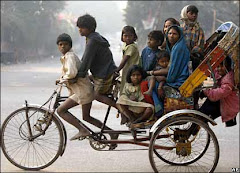
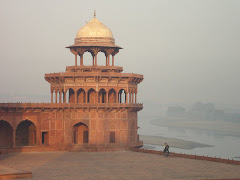


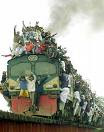
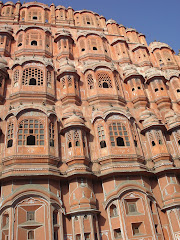
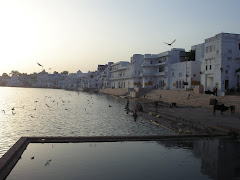







No comments:
Post a Comment